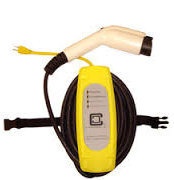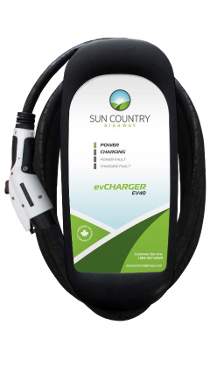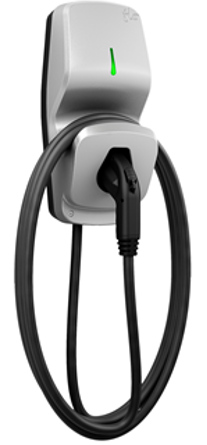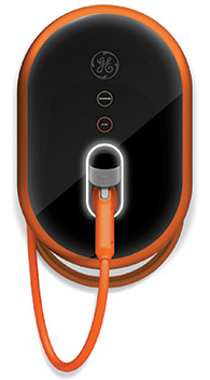Electric Car Charger, EVSE Class2 Installation
The Electric Vehicle Charging Station or EVSE (Electric Vehicle Supply Equipment) is a device that supplies a parked EV (electric vehicle) with the electrical energy necessary to recharge EV batteries. Plug-in-hybrid vehicle and all-battery electric vehicle (BV) ownership in Toronto, Mississauga, Etobicoke, Oakville, Brampton and the GTA is expanding. A charging station that you can count on is a necessity in a residential or commercial set up before the EV is delivered from the dealer. For solving "the mystery" of the Electric Vehicle (EV) visit the Electric Vehicle Discovery Centre website or their "brick and mortar" location in North York, ON. The EV Discovery Centre is not for profit, independent and not aligned with any particular manufacturer. They have several different EVSE makes and models on display and many EVs for the test drive.

Charging options vary from one EV model to another. Generally, your EV contains a built in charger and will be supplied with a standard cord being a Level 1 ( Class 1 ) Charging Station. A Level 1 Charging Station is the basic 120V solution, and speeding up charging time will require use of a Level 2 ( Class 2 ) Charging Station. A Level 2 ( Class 2 ) Charging Station uses the charger built into the EV, supplies it with a higher voltage ( 240V ) and amperage, for a higher wattage and a shorter charge time. The actual numbers for given EVSE will change from one EV to another, depending on the EV maker / model and the EV battery size. The extensive list of EVs, EVSEs and resulting charging times is available at the Sun Country Highway website. The Green Electrician does not stock these items and relies on the units available from reputable manufacturers. The price and options of the Level 2 Charging Station unit depends mainly on the fancy of the client.



The EV receptacles are standardized in North America and the plug J1772 fits all the makes and models of the regular production EVs, except the proprietary Tesla EV receptacle. You will need the Tesla adapter when using non-Tesla EVSE to charge any Tesla EV.
The short list of some popular EVSE-s with links to suppliers in alphabetical order:
Charge Point
Flo
Grizzl-e
Leviton
Sun Country Highway
Tesla
Beware of inexpensive, usually not certified for Canada, chinese EVSEs available online! Unless you want to test their reliability on your EV.
The Green Electrician is a Licensed Electrical Contractor and an experienced EVSE installer. We install customer-supplied 240V, 12 - 48 Amp Level 2 ( Class 2 ) Charging Stations outdoor or in the garage, depending on customer's requirement and Ontario Electrical Safety Code rules. Please be aware your home electrical system may not have enough power available to support a fully blown EVSE on the top of the existing circuits and devices. The rule of thumb is that with an electric stove, dryer and air conditioner installed to your home's 100Amp Electrical Service, you need to upgrade your home Electrical Service to 200Amp. Please check the numbers written on the handle of your home's Main Breaker. Having a swimming pool or hot tub at 100Amp Electrical Service home makes the upgrade more necessary.
The installation will provide a separate electrical circuit for each Station, and will include all the hardware (EVSE not included) required by the Ontario Electrical Safety Code and Electrical Safety Authority Certificate. The cost is in the 750 - 1,500 Cdn +HST range.
Sometimes we come across customer's request to install "just a dryer receptacle" in the garage. For us it is obvious that nobody keeps dryer in the garage. 90% of plug-in EVSEs use a 50Amp Electric Stove receptacle, different from a 30Amp Electric Dryer receptacle. This is where the plug-in EVSE installation becomes more expensive than a hardwired stationary EVSE installation. Most of the hardwired stationary EVSEs require a less expensive smaller gauge wire than the 50Amp receptacle (NEMA 14-50 or 6-50) to be used for the plug-in EVSE. Another advantage of a hardwired stationary outdoor EVSE is that it has a longer reach to the driveway.
Attention, with the plug-in EVSE, the feeding receptacle and the panel with electronics have to stay indoor. The charging cable should not extend through the door or window, according to ESA.